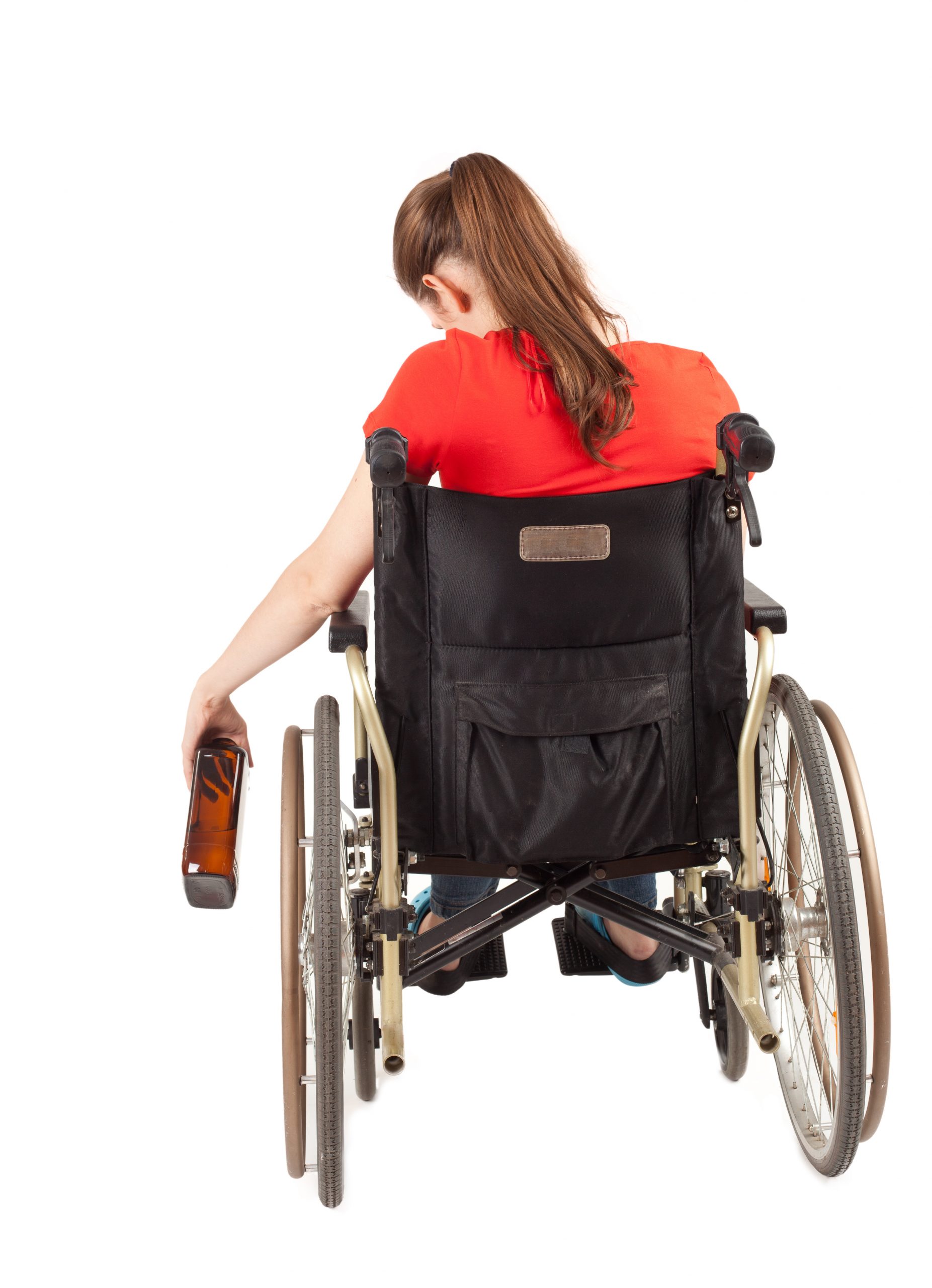The Disability Discrimination Act states that alcoholism is not included under its list of protected disabilities, however, courts in the U.S. and Canada have ruled on a case-by-case basis that alcoholism is a disability that is protected by law. This means that alcoholics maintain certain rights and privileges. For example, it would be legally questionable to fire an alcoholic employee for behavior related to their alcoholism. The government provides assistance to people suffering from alcoholism in the form of food stamps and subsidized housing. Certainly, there are generous interpretations to the law and even loopholes. For instance, even if a judge were to rule against protecting alcoholism as a disability, the conditions that result from this disease, such as depression or cirrhosis, may qualify for protection. But the bottom line is that major organizations, such as the ACLU and American Medical Association, view alcoholism as a disability.
There are two competing sets of recommendations at odds in laws regarding the workplace. At the same time that the Americans with Disabilities Act stipulates that employers are responsible for making sure that a professional environment is devoid of illegal substances and their use, this same law states that workers who are recovering from addiction are entitled to protection. However, the process of recovery is almost never a straight line, and is often fraught with relapse. At what point is someone “recovering” versus a “user”?
2 Things to Consider Before Firing an Employee
 Employers who might be considering firing an employee because of his or her excessive drinking need to take a few things into consideration, given that courts have returned rulings that view it as a protected disability. First, equal treatment for all employees. If a number of employees have drinking problems, then one or two cannot be selected for termination. This is difficult grey area because employers should document the difference between moderate to heavy drinking and an actual addiction. It’s extremely challenging in certain employment sectors, such as the restaurant industry, where alcohol consumption tends to be quite widespread. Second, the excessive drinking has to interfere with the performance of employee’s job and lessen the quality of their work. This can also prove to be challenging to distinguish and document.
Employers who might be considering firing an employee because of his or her excessive drinking need to take a few things into consideration, given that courts have returned rulings that view it as a protected disability. First, equal treatment for all employees. If a number of employees have drinking problems, then one or two cannot be selected for termination. This is difficult grey area because employers should document the difference between moderate to heavy drinking and an actual addiction. It’s extremely challenging in certain employment sectors, such as the restaurant industry, where alcohol consumption tends to be quite widespread. Second, the excessive drinking has to interfere with the performance of employee’s job and lessen the quality of their work. This can also prove to be challenging to distinguish and document.
Drug use is a bit more problematic of a category than alcoholism because of the illegal nature of those substances. It is clearly stated in the law that illegal drug use is not considered a disability, however, it is legal in the U.S. for anyone over the age of 21 to consume alcohol, so alcoholism, in not involving with illegal substances, is more readily treated as a disability in the workplace than any other addiction. Testing for illegal drug use is not a violation of protection for disabilities.
Recovering alcoholics who are not currently drinking are the clearest category protected under the disability act. Employers must provide reasonable accommodation of alcoholism as a disability. This means to offer the employee a special schedule in order to attend Alcoholics Anonymous meetings. The official disability awards is based functional limitation caused by alcoholism.
The Disability Discrimination Act states that alcoholism is not included under its list of protected disabilities, however, courts in the U.S. and Canada have ruled on a case-by-case basis that alcoholism is a disability that is protected by law. This means that alcoholics maintain certain rights and privileges. For example, it would be legally questionable to fire an alcoholic employee for behavior related to their alcoholism. The government provides assistance to people suffering from alcoholism in the form of food stamps and subsidized housing. Certainly, there are generous interpretations to the law and even loopholes. For instance, even if a judge were to rule against protecting alcoholism as a disability, the conditions that result from this disease, such as depression or cirrhosis, may qualify for protection. But the bottom line is that major organizations, such as the ACLU and American Medical Association, view alcoholism as a disability.
There are two competing sets of recommendations at odds in laws regarding the workplace. At the same time that the Americans with Disabilities Act stipulates that employers are responsible for making sure that a professional environment is devoid of illegal substances and their use, this same law states that workers who are recovering from addiction are entitled to protection. However, the process of recovery is almost never a straight line, and is often fraught with relapse. At what point is someone “recovering” versus a “user”?
2 Things to Consider Before Firing an Employee
Employers who might be considering firing an employee because of his or her excessive drinking need to take a few things into consideration, given that courts have returned rulings that view it as a protected disability. First, equal treatment for all employees. If a number of employees have drinking problems, then one or two cannot be selected for termination. This is difficult grey area because employers should document the difference between moderate to heavy drinking and an actual addiction. It’s extremely challenging in certain employment sectors, such as the restaurant industry, where alcohol consumption tends to be quite widespread. Second, the excessive drinking has to interfere with the performance of employee’s job and lessen the quality of their work. This can also prove to be challenging to distinguish and document.
Drug use is a bit more problematic of a category than alcoholism because of the illegal nature of those substances. It is clearly stated in the law that illegal drug use is not considered a disability, however, it is legal in the U.S. for anyone over the age of 21 to consume alcohol, so alcoholism, in not involving with illegal substances, is more readily treated as a disability in the workplace than any other addiction. Testing for illegal drug use is not a violation of protection for disabilities.
Recovering alcoholics who are not currently drinking are the clearest category protected under the disability act. Employers must provide reasonable accommodation of alcoholism as a disability. This means to offer the employee a special schedule in order to attend Alcoholics Anonymous meetings. The official disability awards is based functional limitation caused by alcoholism.




